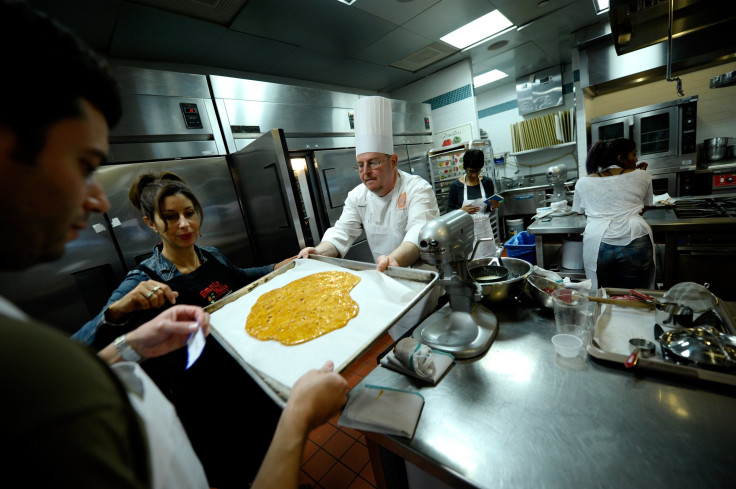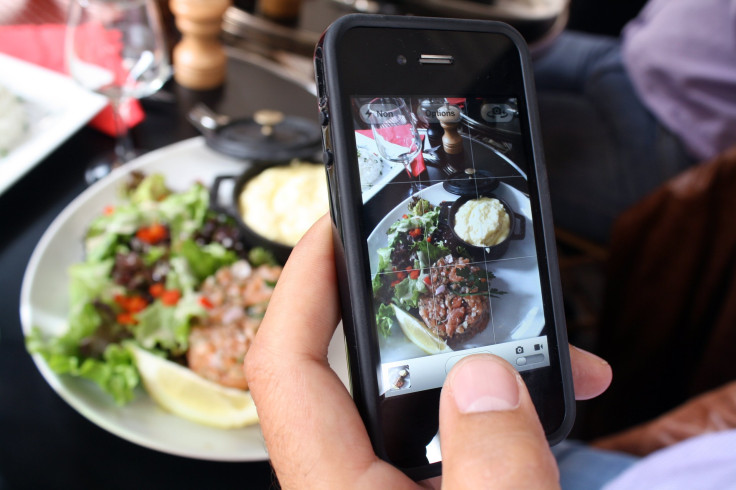Restaurant Week 2015: NYC, Boston, Los Angeles Offer Deals, But Is Promotion Worth It For Diners?

Foodies across the nation are getting full this summer on restaurant week deals offering succulent steaks, Asian fusion, creamy pastas and gourmet burgers. But not everyone is a fan. Critics have complained for years that the week-long specials often held in big cities are merely an excuse for businesses to stuff clueless bargain-hunters into high-end restaurants for overpriced meals the kitchen wouldn't dare typically serve at full price.
That could soon be changing. With food blogs and meal pictures increasingly trending on social media, promoters are hoping to transform restaurant week into a viral event that appeals to a new generation of customers. They are tweaking their menus, too, betting that more thoughtful dining options will help overcome the event's reputation as a ploy to pack in the hungry and unsophisticated.
"It’s an opportunity to showcase our signature dishes to a group of people that normally doesn’t come in,” said Chris Jaeckle, the executive chef at All’onda, a four and a half star restaurant in New York City that participates in restaurant week.
A Bitter Taste
Numerous major cities across the nation have jumped on board in recent years with the restaurant week concept in which participating restaurants offer prix fixe lunches and dinners. Cities often see it as an opportunity to get the community out and bonding over a hot plate. In Chicago, restaurant week is typically held in winter, with three-course meals featuring alligator and andouille sauce, or tea-smoked duck breast. Los Angeles' restaurant week participants include the Mediterranean-influenced wine and ciccchetti bar Bacaro LA and the modern chophouse JAR. Boston hosts its restaurant week in August, while restaurant week goes on for several summer weeks in New York City.
Join us for #NYCRestaurantWeek dinner tonight! pic.twitter.com/9JPQBehHAB
— BUTTER Restaurant (@ButterNYC) July 27, 2015Restaurant week critics argue that it is too hard to offer quality, signature dishes at the price points determined by the prix fixe menu, and that the event often leaves customers disappointed and restaurants with damaged reputations. In many cases, deals are hard to come by if patrons are required to order multiple courses.
"Because you’re essentially ordering more than you wanted, you’re paying more as well," wrote one food blogger in a post titled "Five Reasons Why Restaurant Week Sucks." "With dinner costing $30 for the meal, not including drinks, you could easily grab a $15 entree and spend the remaining half on booze."
Quality of service also might be compromised as restaurants struggle to meet the demand and waiters are unwilling to serve newcomers who might not be as forthcoming with tips as regular diners.
“You’ll find when you go to restaurant week, some restaurants that participate turn down their nose at the whole affair, by the way they treat the customers and the foods they serve,” said Sarah Zorn, a food editor at Brooklyn Magazine in New York City. “They look at them as relationships they don’t need to cultivate and they give people bottom-of-the-barrel food and bottom-of-the-barrel service, which I think is horrible.”
The restaurant week concept was created in 1992 as a charitable gesture to the 15,000 reporters coming to New York City to cover the Democratic National Convention, the Guardian reported. The event has since expanded as a way to get customers through the door for many eateries struggling through a slump. Roughly 34 percent of Americans visit casual dining restaurants once a week, while another 30 percent eat out about once or twice a month.
Thoroughly enjoying watching our food being plated in front of us. #RestaurantWeek pic.twitter.com/k304KwZ8GF
— Yissel (@TheDesignerGeek) July 28, 2015Zorn said most of the time restaurant week eaters will have to weed out the bad restaurants from the good simply by trial-and-error. It's a good idea to compare the prix fixe menu with the regular menu the eatery typically offers to assess whether it's a good deal. If a Mexican restaurant, for example, is offering a mixed salad on its prix fixe menu, it might not be offering the highest-quality product it is capable of, Zorn said.
"Make sure the dishes are in line with the restaurants aesthetic," she said. "I would look for dishes that speak to what the restaurant is about and what their culinary perspective is."
Recipe For Success
Some chefs have attempted to address the event's poor reputation by editing prix fixe menus to reflect signature dishes and fair portions. Spice Market’s head chef Anthony Ricco recalled attending restaurant week years ago when he was still a line cook. It was a chance for him to explore restaurants that might not have been on his radar or in his budget. But the promotions often resulted in tiny portions as a part of a costly three-course meal.
Ricco said he now works hard now to make sure his customers don’t feel cheated during restaurant week in New York. “I will always serve a normal-sized portion at Spice Market, even if it affects our costs, we will balance it out at the end of the year,” said Ricco.
Some restaurants are also limiting how they participate in restaurant week instead of compromising quality. Benny’s Chop House in Chicago recently chose to forgo participating in the dinner part of restaurant week and instead only offered a lunch prix fixe menu. Mitchell Schmieding, director of operations for the steakhouse, said Benny’s could not offer a respectable dinner of prime USDA meat at the $44 price point, but the luncheon style steaks on the prix fixe lunch menu were fairly priced and at a reasonable portion.
Admir Alibasic, executive chef at Ben and Jack’s Steakhouse in New York City, has worked at the restaurant since he was 18 years old. Alibasic, now 29, said the best way to survive restaurant week is to stick with what you know.
“If you’re a steakhouse, you can’t have chicken and fish menu items and not showcase your steaks,” said Alibasic. “There are a couple of options that we took off the regular menu and put on restaurant week menu, but just at a smaller portion, such as the 12 oz. sirloin as opposed to a 22 oz. sirloin."

How Social Media Is Changing The Game
Eager to overcome the perception that restaurant week is for suckers, restaurants are also increasingly reaching out to a growing online community of food critics and photographers who regularly post vivid images of meals that generate hundreds of "likes". Various cities including Blacksburg, Virginia and Charlotte, North Carolina have launched restaurant week accounts on Twitter. In recent days, NYC Restaurant Week's Instagram photo contest has garnered 22,542 posts with the hashtag #nycrestaurantweek.
Not only is technology changing the way restaurant week is marketed, it is also making it easier for diners to navigate the mass choices they are faced with. Flavour, an app that connects chefs, local experts and notable publications to a city's food scene, cross-referenced this year eateries participating in Los Angeles' and New York City's restaurant weeks with ones listed on the Flavour app, highlighting the overlaps, said Rohit Gupta, senior product manager at TastingTable.com, which owns Flavour. Meanwhile, sites like Opentable.com allow deal seekers to book reservations for tables that are in high demand during restaurant week.
Susan Frasca, owner of Kinzie Chophouse, a steakhouse in Chicago that participates in restaurant week, said she has seen a shift in her diners' demographics as more young people increasingly seek out their city's best deals, especially iPhone-savvy millennials who like to take pictures of their meals before the first bite. Although the steakhouse typically serves people between the ages of 35 and 55, Kinzie has seen more 25-to-40 year-olds during restaurant week in recent years.
"It’s people who normally don’t go to a steakhouse," said Frasca. "They're kind of the future tomorrow, so it’s fun to see people come in and enjoy the experience."
Feeling the love @amyyhc #NYCRestaurantweek #fangram #catchlunch #catchnyc #nycfood #nycbest #nyceats #EMMEATS pic.twitter.com/dGyPmhRtiW
— Catch Restaurant NYC (@CatchNY) March 2, 2015But just as social media can be used to advance a restaurant's exposure and clientele, it can also be wielded as a weapon. Jaeckle, the executive chef at All'onda, recalled that in its first year participating in restaurant week, the Venice-inspired eatery struggled with value perception. The subsequent bad reviews posted online wreaked havoc on its reputation.
“We saw business drop off the first year due to bad Yelp reviews and our rating temporarily dropped. It was very painful for us,” said Jaeckle. “I think if restaurants don’t focus on making people happy, then it could be really bad for the business."
© Copyright IBTimes 2024. All rights reserved.












